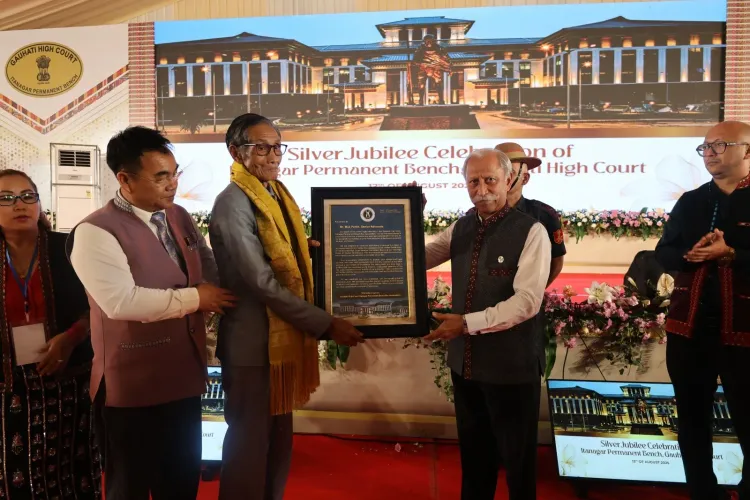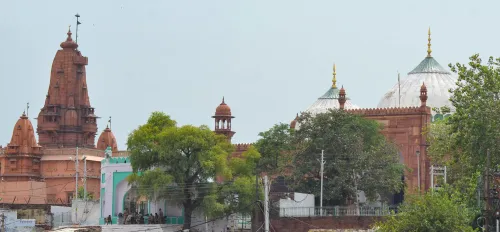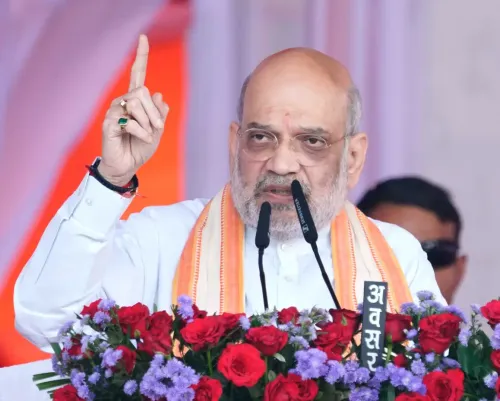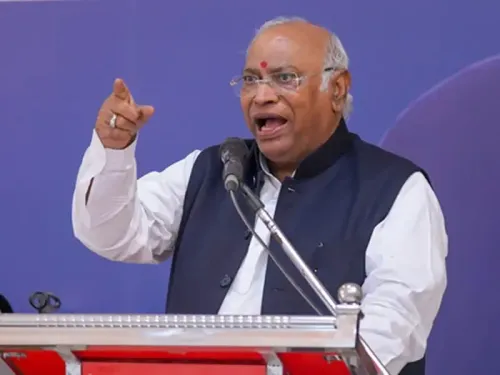How Are Legal Reforms Shaping the Justice System in Arunachal Pradesh?

Synopsis
Key Takeaways
- Modernization of the justice system aims to enhance accessibility and transparency.
- Shift from colonial laws to new legal frameworks effective July 2024.
- The Itanagar Permanent Bench symbolizes local justice.
- Community traditions inform contemporary judicial practices.
- Justice should be a humane process accessible to all.
Itanagar, Aug 12 (NationPress) Arunachal Pradesh Governor Lt. General K.T. Parnaik (Retd.) stated on Tuesday that the latest legal reforms are designed to modernise the justice system, making it quicker, more transparent, and centered around the people. This shift emphasizes delivering justice with compassion, speed, and fairness, moving beyond mere punishment.
As part of these reforms, the Governor noted that India has discarded colonial-era laws like the IPC, CrPC, and Evidence Act, replacing them with the Bharatiya Nyaya Sanhita, Bharatiya Nagarik Suraksha Sanhita, and Bharatiya Sakshya Adhiniyam, which will take effect from July 1, 2024.
Speaking at the Silver Jubilee celebration of the Gauhati High Court, Itanagar Permanent Bench at the High Court Complex in Naharlagun, the Governor remarked that this occasion symbolizes pride, reflection, and renewal, marking the inception of the Itanagar Permanent Bench and heralding a new era in bringing justice closer to the people of Arunachal Pradesh.
He highlighted that prior to its establishment, many residents undertook long and challenging journeys to distant courts. Today, the bench serves as a guardian of constitutional values, a beacon of swift and equitable justice, and a pillar of public trust.
During this momentous Silver Jubilee, the Governor urged the legal community to recommit to the noble mission that unites them, ensuring that justice is not only achieved but is also perceived to be achieved in every corner of this beautiful land.
Lt. General Parnaik (Retd.) noted that Arunachal Pradesh's traditions, such as the Adi community's Kebang, reflect principles of dialogue, consensus, and fairness that have historically nurtured harmony in villages.
He emphasized that while courts operate under the Constitution and the nation’s laws, such indigenous systems serve as a reminder that justice is not merely a verdict but a fair, transparent, and humane process.
The Governor proclaimed that with its new state-of-the-art court building, the Bench is poised to address the needs of a rapidly evolving world, with technology, transparency, and dignity at its core.
He affirmed that it stands as a commitment that justice will be accessible, efficient, and ready for the future.
By updating our legal framework, he stated, India is closing the gap between law and the real-life experiences of its citizens. Justice must not be a distant promise but a tangible reality in every village, town, and city, he stressed.
Looking forward, the Governor urged that no voice should be silenced, no grievance too minor, and no citizen too distant from the reach of justice.
To honor the occasion, the Governor recognized advocates who have dedicated 30 years to legal practice, including Adv Muk Perting, Adv. Tayum Som, and Adv. Tony Pertin.
Chief Minister Pema Khandu, Chief Justice of the Gauhati High Court, Justice Ashutosh Kumar, State Minister of Law and Justice, Adv. Kento Jini, and Justice Budi Habung also addressed the event.
Chief Justice of India (CJI) B.R. Gavai inaugurated the newly constructed court building of the Gauhati High Court, Itanagar Permanent Bench on Sunday.









